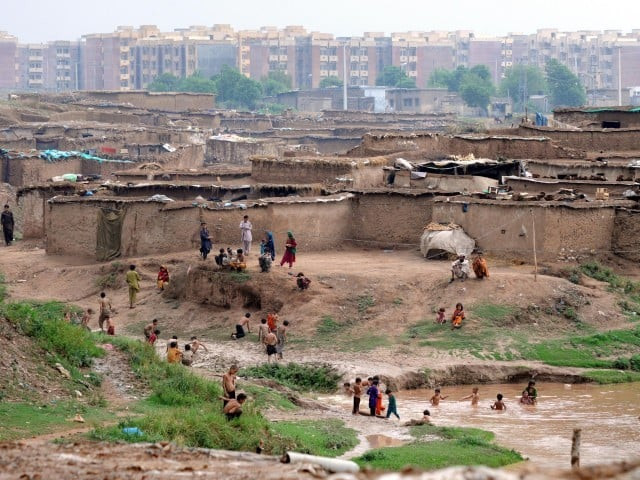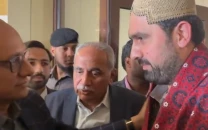Housing crisis: Slums, the capital’s fastest growing residential area
Population increasing rapidly as CDA, centre fail to provide low-income housing

Over 80,000 people living in capital’s katchi abadis, says report. PHOTO: EXPRESS/QAZI USMAN
The capital’s population is rapidly increasing, and so is the population of its irregular settlements.
A new survey suggests that the last three years have seen the population of slums grow at 14 per cent per annum.
The report released by the Islamabad Police in early 2013 over ‘slums and their population in Islamabad’ had stated that some 13,521 families consisting of 84,591 individuals are living in them.
A senior interior ministry official, who is assisting an ongoing inquiry into the issue, said a fresh survey put the number of slum dwellers at around 125,000.
The latest survey was carried out as part of an interior ministry inquiry into which CDA officers and officials allowed the establishment and growth of irregular settlements.
The officer did not reveal further findings, saying a report would soon be submitted to the federal government.
Another officer associated with the inquiry said, “Feeble control of the successive CDA managements over second and third tier officials, who are sometimes backed by the powerful CDA labour union, and the prevailing culture of corruption contributed to rapid… population growth.”
Similar issues were reported regarding slums in rural parts of Islamabad, most of which fall under the administrative control of the Islamabad Capital Territory (ICT) Administration.
“Knowing the situation, both the CDA and ICT managements are reluctant to hand over complete records demanded as part of the inquiry,” the officer added.
Housing shortage
Despite the worrying situation, neither the federal government nor the capital’s civic agency have any solution on hand to address the severe shortage issue of low income housing in the city.
Urban planner Tasneem Siddiqui told The Express Tribune that revisions in the city’s Master Plan are needed to introduce one or two residential sectors dedicated to low-income housing.
“One or two sectors with housing units only for the working class and low-income people can solve the problem,” Siddiqui said.
He was of the view that affordable housing for the poor can be provided either on rental or ownership basis modeled on the successful Khuda Ki Basti project in Sindh, where plots were given to residents of informal settlements and it was ensured that after the plots were handed over, the squatter areas would be razed.
“The government and its departments should realise that if they need laborers and domestic workers to keep the city functioning, they should pay attention to their housing needs as well,” he said.
Published in The Express Tribune, November 5th, 2015.



















COMMENTS
Comments are moderated and generally will be posted if they are on-topic and not abusive.
For more information, please see our Comments FAQ